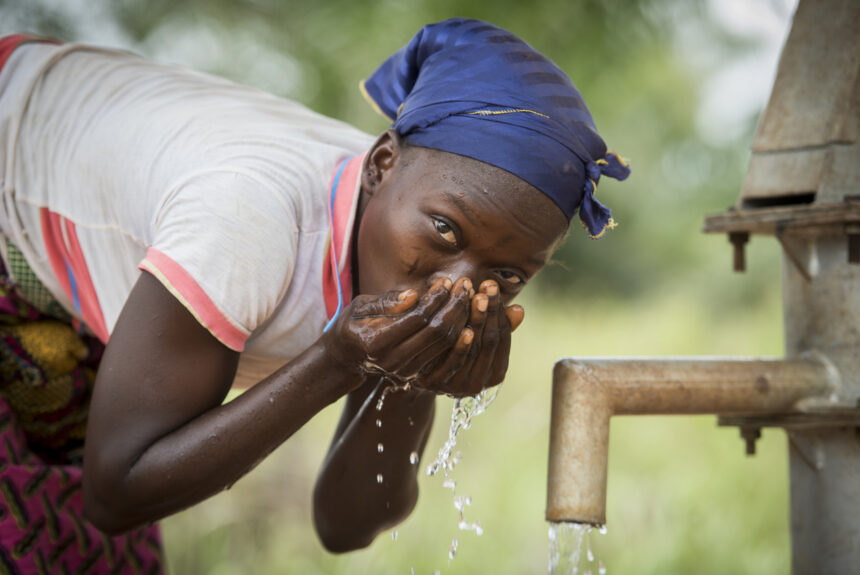The United Nations considers access to safe drinking water to be a basic human right. Despite this, billions of people around the world do not have access to it. In 2022 at least 1.7 billion used a contaminated water source which causes several waterborne diseases including cholera, dysentery, and hepatitis A. The World Health Organization estimates that each year some 1 million people die each year from diarrhea because of unsafe drinking water, sanitation, or hygiene, with a majority of these deaths happening in the developing world.
>>>READ: Breathe Easy: Economic Freedom Freedom Provides a Breath of Fresh Air to the World
Economic freedom can help address these issues by expanding clean drinking water and sanitation globally. As our most recent Free Economies are Clean Economies report finds, there is a strong, positive correlation between a country’s economic freedom score and its ability to deliver safe drinking water to its citizens.
Economic freedom can help to deliver meaningful progress by increasing levels of GDP and prosperity. This would empower governments and private entities to more readily expand water infrastructure and households to spend additional resources to hook up water lines to their homes. Competitive and open markets would allow entrepreneurs to develop new methods of water filtration and strong institutions would provide oversight to ensure that water is being used sustainably and equitably.
Property rights have a strong role to play in expanding water access. Strong property rights protections incentivize ownership, community upkeep, and innovative thinking to address water-related challenges. One example of this is Water4, which installs water pumps in rural villages and offers training to the community to operate, maintain, and fix the pumping technology. Water4 also charges a small fee for the clean water that communities receive which is used to pay for infrastructure upgrades and training programs. This not only provides a revenue source but also ensures that the community has ownership of the water infrastructure, which incentivizes upkeep and repairs.
Switzerland, which enjoys a high safe drinking water ranking on Yale’s Environmental Performance Index attributes its strong property rights protections to its success:
Only where the right to own (i.e. sell/buy) is guaranteed, are people willing to invest time and money for the improvement of a common water supply. Thus, the consistent and stable property laws provided a solid framework, not so much for private profit but for common enterprises such as water supply networks.
Conversely, weak property rights encourage resource depletion and weak institutions allow polluters to go unregulated and potentially violate the rights of other property owners. In Venezuela, which has the lowest possible ranking for property rights protections in the Index of Economic Freedom, the state-owned oil company PDVSA has freely polluted and drained the land’s natural resources. Despite plans for the federal government to clean up the country’s degradation, at least 200,000 barrels of oil have leaked in recent years, heavily polluting lakes and water resources.
>>>READ: For More Innovation, Unleash More Economic Freedom
Government integrity is also integral to expanding the availability of clean water. For much of the world, water is a public good, and as such its planning and distribution is handled by either the federal, state, or local government. However, corruption, cronyism, or ineffective systems can delay water infrastructure projects which is especially problematic in developing nations where populations are rapidly increasing. As researchers Kokou Dangui and Shaofeng Jia write in the journal Water:
The consistent negative and significant impact of population density across all income groups supports that the fast increase in the population density is the strongest determinant of water infrastructure underperformance in the [Sub-Saharan Africa] SSA region…These results support the hypothesis that countries with stronger economies may be associated with greater governance effectiveness, allowing for sustainable planning of the increase in population density.
Increasing the availability of clean and reliable drinking water can save lives, reduce illnesses, and improve economic well-being. With local access to secure water people can spend less time gathering and collecting and more time in school, working, or starting a business.
Economic freedom can help countries increase water access and improve lives around the world.
The views and opinions expressed are those of the author’s and do not necessarily reflect the official policy or position of C3.
